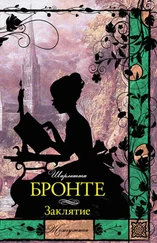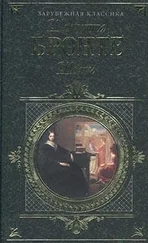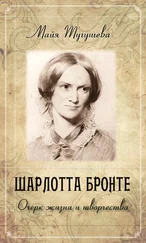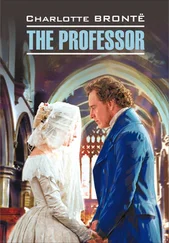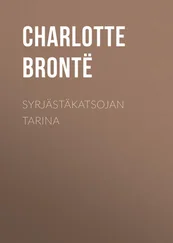Шарлотта Бронте - The Professor
Здесь есть возможность читать онлайн «Шарлотта Бронте - The Professor» — ознакомительный отрывок электронной книги совершенно бесплатно, а после прочтения отрывка купить полную версию. В некоторых случаях можно слушать аудио, скачать через торрент в формате fb2 и присутствует краткое содержание. Год выпуска: 2014, Издательство: epubBooks Classics, Жанр: Классическая проза, на английском языке. Описание произведения, (предисловие) а так же отзывы посетителей доступны на портале библиотеки ЛибКат.
- Название:The Professor
- Автор:
- Издательство:epubBooks Classics
- Жанр:
- Год:2014
- ISBN:нет данных
- Рейтинг книги:3 / 5. Голосов: 1
-
Избранное:Добавить в избранное
- Отзывы:
-
Ваша оценка:
- 60
- 1
- 2
- 3
- 4
- 5
The Professor: краткое содержание, описание и аннотация
Предлагаем к чтению аннотацию, описание, краткое содержание или предисловие (зависит от того, что написал сам автор книги «The Professor»). Если вы не нашли необходимую информацию о книге — напишите в комментариях, мы постараемся отыскать её.
The Professor — читать онлайн ознакомительный отрывок
Ниже представлен текст книги, разбитый по страницам. Система сохранения места последней прочитанной страницы, позволяет с удобством читать онлайн бесплатно книгу «The Professor», без необходимости каждый раз заново искать на чём Вы остановились. Поставьте закладку, и сможете в любой момент перейти на страницу, на которой закончили чтение.
Интервал:
Закладка:
"Prenez vos cahiers de dictee, mesdemoiselles."
Not so had I bid the boys at Pelet's take their reading–books. A rustle followed, and an opening of desks; behind the lifted lids which momentarily screened the heads bent down to search for exercise–books, I heard tittering and whispers.
"Eulalie, je suis prete a pleuer de rire," observed one.
"Comme il a rougi en parlant!"
"Oui, c'est un veritable blanc–bec."
"Tais–toi, Hortense—il nous ecoute."
And now the lids sank and the heads reappeared; I had marked three, the whisperers, and I did not scruple to take a very steady look at them as they emerged from their temporary eclipse. It is astonishing what ease and courage their little phrases of flippancy had given me; the idea by which I had been awed was that the youthful beings before me, with their dark nun–like robes and softly braided hair, were a kind of half–angels. The light titter, the giddy whisper, had already in some measure relieved my mind of that fond and oppressive fancy.
The three I allude to were just in front, within half a yard of my estrade, and were among the most womanly–looking present. Their names I knew afterwards, and may as well mention now; they were Eulalie, Hortense, Caroline. Eulalie was tall, and very finely shaped: she was fair, and her features were those of a Low Country Madonna; many a "figure de Vierge" have I seen in Dutch pictures exactly resembling hers; there were no angles in her shape or in her face, all was curve and roundness—neither thought, sentiment, nor passion disturbed by line or flush the equality of her pale, clear skin; her noble bust heaved with her regular breathing, her eyes moved a little—by these evidences of life alone could I have distinguished her from some large handsome figure moulded in wax. Hortense was of middle size and stout, her form was ungraceful, her face striking, more alive and brilliant than Eulalie's, her hair was dark brown, her complexion richly coloured; there were frolic and mischief in her eye: consistency and good sense she might possess, but none of her features betokened those qualities.
Caroline was little, though evidently full grown; raven–black hair, very dark eyes, absolutely regular features, with a colourless olive complexion, clear as to the face and sallow about the neck, formed in her that assemblage of points whose union many persons regard as the perfection of beauty. How, with the tintless pallor of her skin and the classic straightness of her lineaments, she managed to look sensual, I don't know. I think her lips and eyes contrived the affair between them, and the result left no uncertainty on the beholder's mind. She was sensual now, and in ten years' time she would be coarse—promise plain was written in her face of much future folly.
If I looked at these girls with little scruple, they looked at me with still less. Eulalie raised her unmoved eye to mine, and seemed to expect, passively but securely, an impromptu tribute to her majestic charms. Hortense regarded me boldly, and giggled at the same time, while she said, with an air of impudent freedom—
"Dictez–nous quelquechose de facile pour commencer, monsieur."
Caroline shook her loose ringlets of abundant but somewhat coarse hair over her rolling black eyes; parting her lips, as full as those of a hot–blooded Maroon, she showed her well–set teeth sparkling between them, and treated me at the same time to a smile "de sa facon." Beautiful as Pauline Borghese, she looked at the moment scarcely purer than Lucrece de Borgia. Caroline was of noble family. I heard her lady–mother's character afterwards, and then I ceased to wonder at the precocious accomplishments of the daughter. These three, I at once saw, deemed themselves the queens of the school, and conceived that by their splendour they threw all the rest into the shade. In less than five minutes they had thus revealed to me their characters, and in less than five minutes I had buckled on a breast–plate of steely indifference, and let down a visor of impassible austerity.
"Take your pens and commence writing," said I, in as dry and trite a voice as if I had been addressing only Jules Vanderkelkov and Co.
The dictee now commenced. My three belles interrupted me perpetually with little silly questions and uncalled–for remarks, to some of which I made no answer, and to others replied very quietly and briefly. "Comment dit–on point et virgule en Anglais, monsieur?"
"Semi–colon, mademoiselle."
"Semi–collong? Ah, comme c'est drole!" (giggle.)
"J'ai une si mauvaise plume—impossible d'ecrire!"
"Mais, monsieur—je ne sais pas suivre—vous allez si vite."
"Je n'ai rien compris, moi!"
Here a general murmur arose, and the teacher, opening her lips for the first time, ejaculated—
"Silence, mesdemoiselles!"
No silence followed—on the contrary, the three ladies in front began to talk more loudly.
"C'est si difficile, l'Anglais!"
"Je deteste la dictee."
"Quel ennui d'ecrire quelquechose que l'on ne comprend pas!"
Some of those behind laughed: a degree of confusion began to pervade the class; it was necessary to take prompt measures.
"Donnez–moi votre cahier," said I to Eulalie in an abrupt tone; and bending over, I took it before she had time to give it.
"Et vous, mademoiselle—donnez–moi le votre," continued I, more mildly, addressing a little pale, plain looking girl who sat in the first row of the other division, and whom I had remarked as being at once the ugliest and the most attentive in the room; she rose up, walked over to me, and delivered her book with a grave, modest curtsey. I glanced over the two dictations; Eulalie's was slurred, blotted, and full of silly mistakes—Sylvie's (such was the name of the ugly little girl) was clearly written, it contained no error against sense, and but few faults of orthography. I coolly read aloud both exercises, marking the faults—then I looked at Eulalie:
"C'est honteux!" said I, and I deliberately tore her dictation in four parts, and presented her with the fragments. I returned Sylvie her book with a smile, saying—
"C'est bien—je suis content de vous."
Sylvie looked calmly pleased, Eulalie swelled like an incensed turkey, but the mutiny was quelled: the conceited coquetry and futile flirtation of the first bench were exchanged for a taciturn sullenness, much more convenient to me, and the rest of my lesson passed without interruption.
A bell clanging out in the yard announced the moment for the cessation of school labours. I heard our own bell at the same time, and that of a certain public college immediately after. Order dissolved instantly; up started every pupil, I hastened to seize my hat, bow to the maitresse, and quit the room before the tide of externats should pour from the inner class, where I knew near a hundred were prisoned, and whose rising tumult I already heard.
I had scarcely crossed the hall and gained the corridor, when Mdlle. Reuter came again upon me.
"Step in here a moment," said she, and she held open the door of the side room from whence she had issued on my arrival; it was a SALLE–A–MANGER, as appeared from the beaufet and the armoire vitree, filled with glass and china, which formed part of its furniture. Ere she had closed the door on me and herself, the corridor was already filled with day–pupils, tearing down their cloaks, bonnets, and cabas from the wooden pegs on which they were suspended; the shrill voice of a maitresse was heard at intervals vainly endeavouring to enforce some sort of order; vainly, I say: discipline there was none in these rough ranks, and yet this was considered one of the best–conducted schools in Brussels.
"Well, you have given your first lesson," began Mdlle. Reuter in the most calm, equable voice, as though quite unconscious of the chaos from which we were separated only by a single wall.
Читать дальшеИнтервал:
Закладка:
Похожие книги на «The Professor»
Представляем Вашему вниманию похожие книги на «The Professor» списком для выбора. Мы отобрали схожую по названию и смыслу литературу в надежде предоставить читателям больше вариантов отыскать новые, интересные, ещё непрочитанные произведения.
Обсуждение, отзывы о книге «The Professor» и просто собственные мнения читателей. Оставьте ваши комментарии, напишите, что Вы думаете о произведении, его смысле или главных героях. Укажите что конкретно понравилось, а что нет, и почему Вы так считаете.



